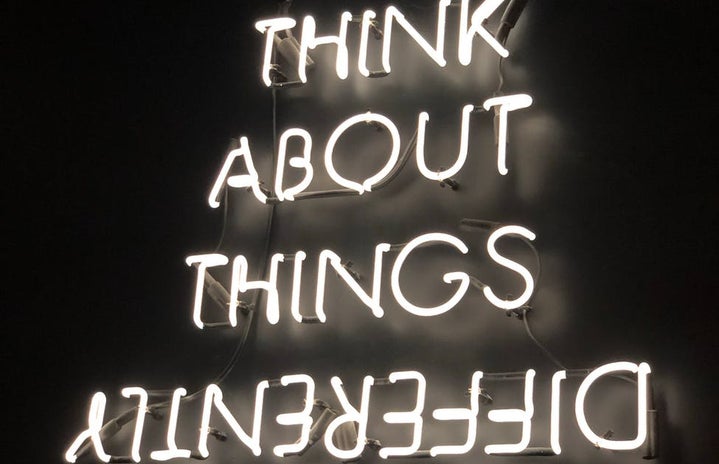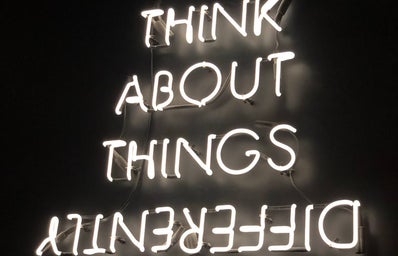What is the meaning of life? Why am I here? What is love? (Baby don’t hurt me) What happens to us when we die? These are the questions that plague humanity. Despite having studied absolutely no philosophy or ethics whatsoever, I seem to believe that, after some light reading now and again, I’m qualified enough to comment on the nature of life and our constant, perhaps fruitless, search for meaning. So, sit back and relax as I woefully misinterpret some of the existential greats with my flair of naive optimism and idealism.
As someone who was told as a child that they were likely to die from their kidney disease, only to then undergo a miraculous recovery, the concepts of death and purpose have always been a morbid curiosity of mine. Hence the perpetual existential crises: what do you do when you don’t die?
For most of us, the time we first thought about death was in relation to our pets. If your parents were too scared of the conversation altogether, I’m sure you were given the old “Fluffy went to the farm” excuse. Unfortunately for my parents, my Guinea pig popped his clogs right in front of me, so they had a hard time avoiding that conversation. Whilst death has always been one of the darker chapters of human existence, even from childhood, I want to propose embracing the notions of death. A lack of meaning can actually be a beautiful thing because we are forced to confront reality and think about how we truly want to live our lives before succumbing to our fate.
The pressure to find your purpose and achieve, not only academically but also socially, is immense. As a final year student struggling to write a dissertation whilst figuring out what the hell to do after graduation, a string of failed work experiences has led to my life currently feeling like a state of perpetual existential crises. I dodge family events to avoid the age-old question of “what are you doing with your life?“ so I don’t feel utterly without purpose from the blank stares I receive when my response is simply “I’m not really sure…”. The concept that life is utterly meaningless creates the negative association that plagues the reputation of existentialism. It has often faced criticism for its “individualistic”, “self-indulgent” and even “narcissistic” approach. The image of Dan Howell, posted on Tumblr in 2014, laying on the floor is often now seen as the face of a modern-day existential crisis whilst what comes after is often neglected. Anyone who is a fan of Michael Schur’s ‘The Good Place’ believe my opinion to be in line with Chidi’s (the personification of why Kantian principles can’t work in modern day society) epic breakdown where he informs his students, “The true meaning of life, the actual ethical system that you should all follow, is nihilism. The world is empty. There is no point to anything, and you’re just gonna die. So do whatever”.
Let it be clear: I am not telling you what to do after the existential crisis or suggesting what moral code you should follow, rather, I am merely proposing that we should not be afraid of the existential crisis. The crisis helps us grow, learn, and better ourselves (though if you come out of the other end as a pure deontologist, I recommend repeating the existential crisis). We aren’t assigned meaning; we CHOOSE it ourselves. The fact is, we need an existential crisis at some point to give our lives meaning, or, as Sartre puts it, to start living “authentically”. As students, living “authentically” and “meaningfully” can be daunting. The peer pressure of university life, juggling how to prioritise work over your social life or vice versa can lead to overwhelming FOMO. It is a paradox, if you’re not achieving academically, you’re screwed, but if you’re not going out, you’re screwed too. However, “authenticity” asks us to commit to what we genuinely want, regardless of external influences that encourage forms of “self-deception”. For example, in the modern world this may be social media, pressure from parents to follow a certain career path or pressure to take a certain degree subject despite having no interest in it whatsoever. In this way we maintain “coherence” as we allow ourselves to see that the overwhelming freedom we have to determine our own lives creates a simultaneous acceptance of the responsibility for one’s own identity. It is important to note, however, this simplification of existential ideas of “authenticity” doesn’t mean you just do things in the moment because you “feel like it”: it is about sustaining and repeating the notion that we are choosing this “authentic identity” at each moment.
Confronting the absurdity of life and acknowledging that we need to find our own meaning, in my opinion, can actually be one of the most beautiful parts of life. To simplify and paraphrase the theories of Kierkegaard, this encounter with the irrational encourages us to take a “leap of [or, my personal preference, “into”] faith”. In this, we not only accept the absurd, but also embrace it as we put our faith or belief into something higher, or “belief by virtue of the absurd”, which for Kierkegaard was religion, depicted in his famous example of Abraham’s belief in God when he is asked to sacrifice his son Isaac.
As an atheist, I can’t exactly pinpoint what my faith is in the same way that Kierkegaard could. Perhaps it’s blind optimism or hope? Either way, referring to the dreaded question that all young people face: “so … what are you doing with your life?”, I think that sometimes, as a woman in her twenties, this question has begun to take on some difficult connotations. If I do stick to my current reluctance to have children, am I rejecting my biological purpose assigned to me? Or is the urge to become a mother a rejection on my part to the radical feminist notion of dismantling patriarchal norms for women?
Here’s the thing though, whatever you choose, according to my very simplistic interpretation of the principles of existentialism, the only person that should give a shit is you.
Written by- Amelia Craik
Edited by- Neeve Pulford


